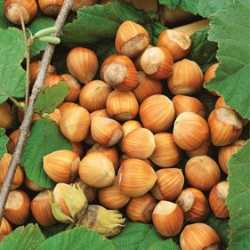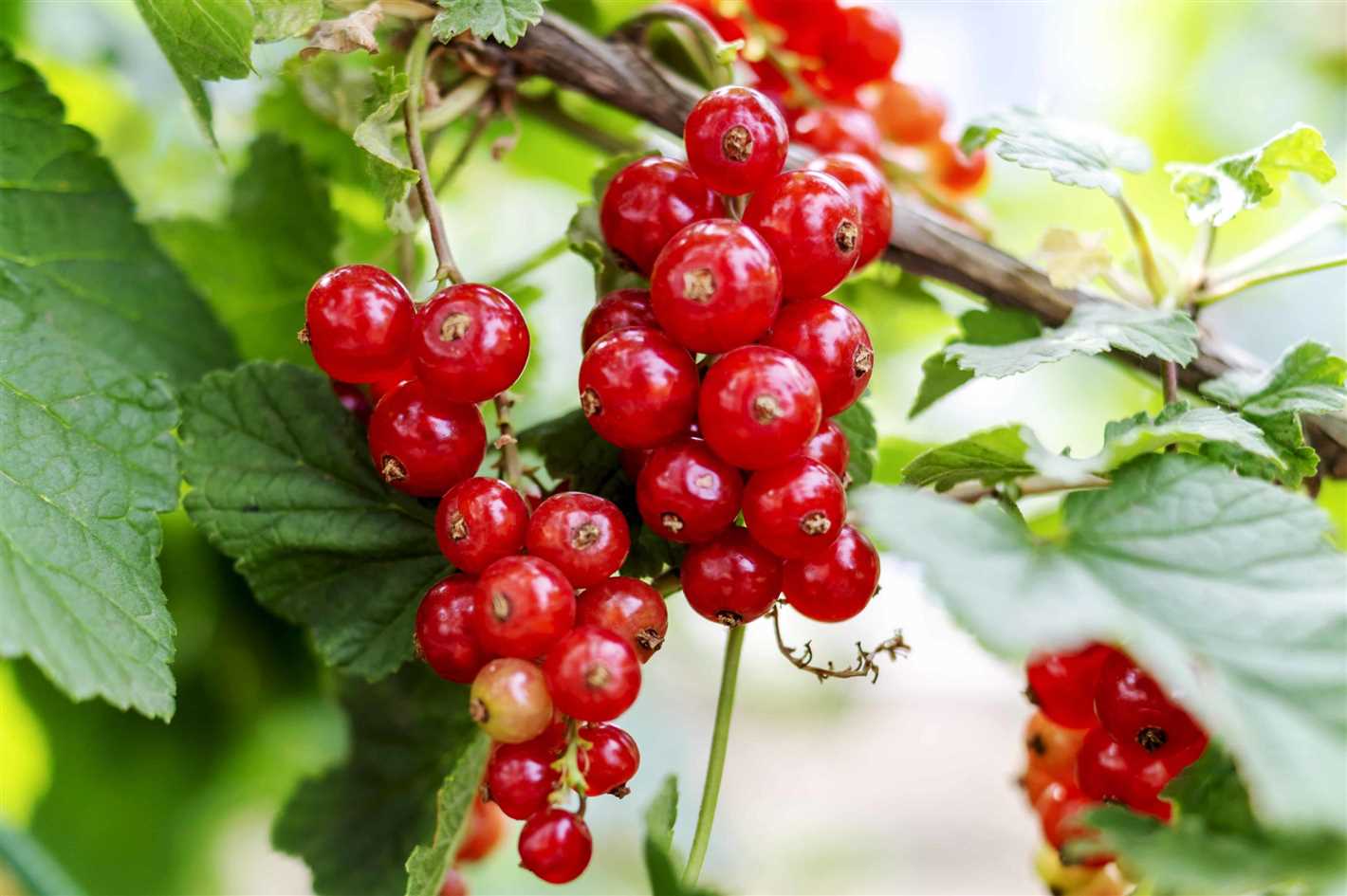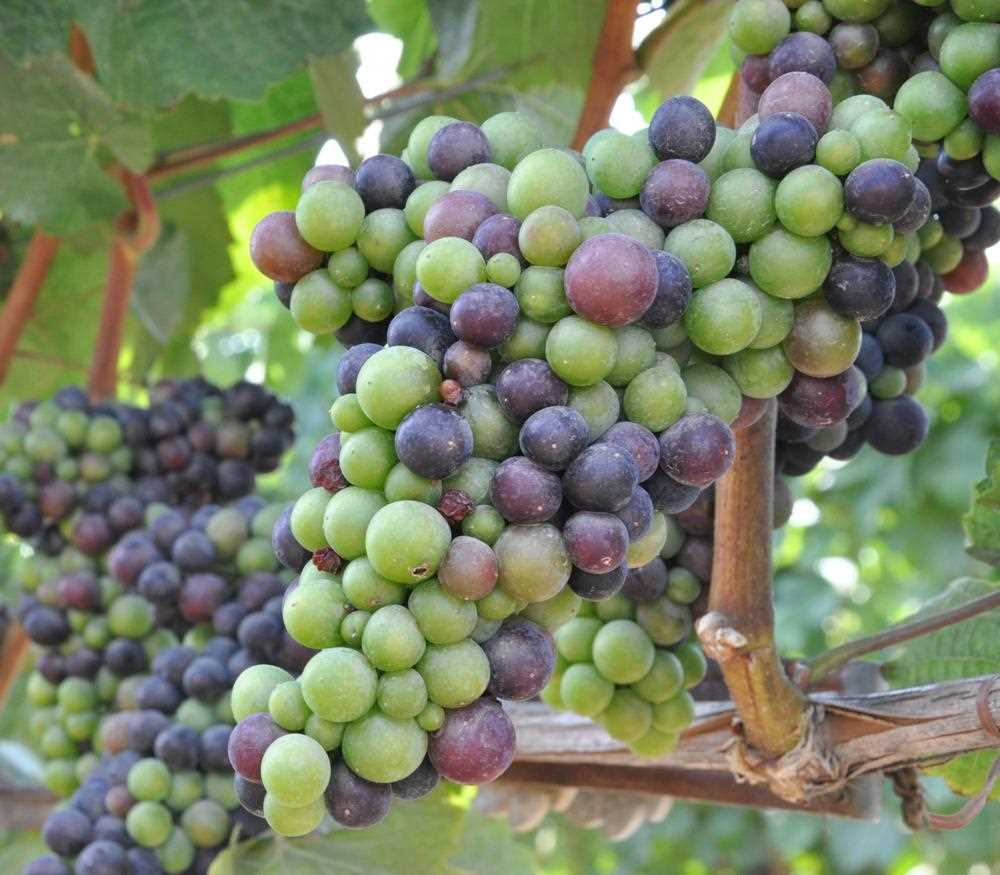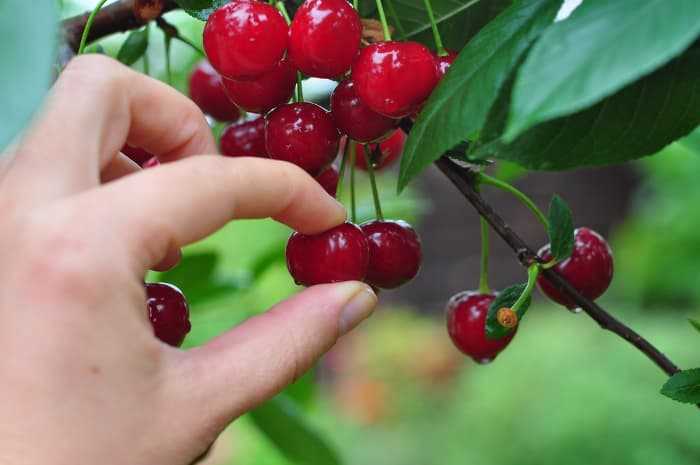- Sweet and Sour Grape Varieties:
- Sweet Varieties:
- Sour Varieties:
- Disease-Resistant Grape Varieties:
- 1. Marquette:
- 2. Regent:
- 3. Noiret:
- 4. Glenora:
- Muscat Grape Varieties:
- Muscat Blanc à Petits Grains:
- Muscat of Alexandria:
- Black Muscat:
- Muscat Ottonel:
- Sultana Grape Varieties:
- Question-answer:
- What are the characteristics of sweet and sour grape varieties?
- Why are disease-resistant grape varieties important?
- What makes muscat grape varieties special?
- What are the main characteristics of sultana grape varieties?
- Can you recommend any disease-resistant grape varieties for home gardeners?
- Video: THE 15 BEST TYPES OF GRAPES
In today’s article, we will review four different grape varieties, each with its own unique characteristics and qualities. These varieties include sweet and sour grapes, disease-resistant grapes, muscat grapes, and sultana grapes.
Sweet and sour grapes are a popular choice for those who enjoy a balance between sweetness and tartness. These grapes have a unique combination of flavors that make them a favorite for snacking or adding to salads and desserts. They are often used in making jellies, jams, and wine due to their versatile taste. With their vibrant colors and refreshing taste, sweet and sour grapes are a delightful addition to any dish.
Disease-resistant grapes are a recent development in grape breeding. These grapes are specifically bred to be resistant to common diseases that can affect grapevines, such as powdery mildew and downy mildew. This makes them an excellent choice for home gardeners and commercial vineyards alike, as they require less pesticide use and are easier to maintain. Disease-resistant grapes come in a variety of flavors and colors, making them a reliable and delicious choice for grape enthusiasts.
Muscat grapes are known for their distinctive aroma and flavor. These grapes have a musky, floral scent and a sweet, fruity taste that is often described as having notes of peach and apricot. Muscat grapes are commonly used in winemaking to produce sweet dessert wines, such as Moscato. They can also be enjoyed fresh as a snack or used to add a unique flavor to salads and other dishes. Muscat grapes are a true delight for those who appreciate a bold and fragrant grape variety.
Sultana grapes, also known as Thompson Seedless grapes, are one of the most widely grown grape varieties in the world. These grapes are pale green in color and have a sweet, mild flavor that is reminiscent of honey. Sultana grapes are often dried to produce raisins, which are a popular snack and ingredient in baked goods. They can also be enjoyed fresh and are a staple in many fruit salads. The versatility and wide availability of sultana grapes make them a beloved choice for grape enthusiasts everywhere.
In conclusion, these four grape varieties – sweet and sour, disease-resistant, muscat, and sultana – each offer their own unique characteristics and flavors. Whether you prefer a sweet and tart flavor, need a disease-resistant option, enjoy the bold aroma of muscat, or appreciate the versatile sultana variety, there is a grape for every palate. So go ahead, explore and indulge in the many delights that these grape varieties have to offer.
Sweet and Sour Grape Varieties:
Grapes are a versatile fruit that come in many different varieties. Some grapes are sweet and juicy, while others are more sour and tart. Here, we will explore some of the sweet and sour grape varieties that are popular among wine enthusiasts and home gardeners alike.
Sweet Varieties:
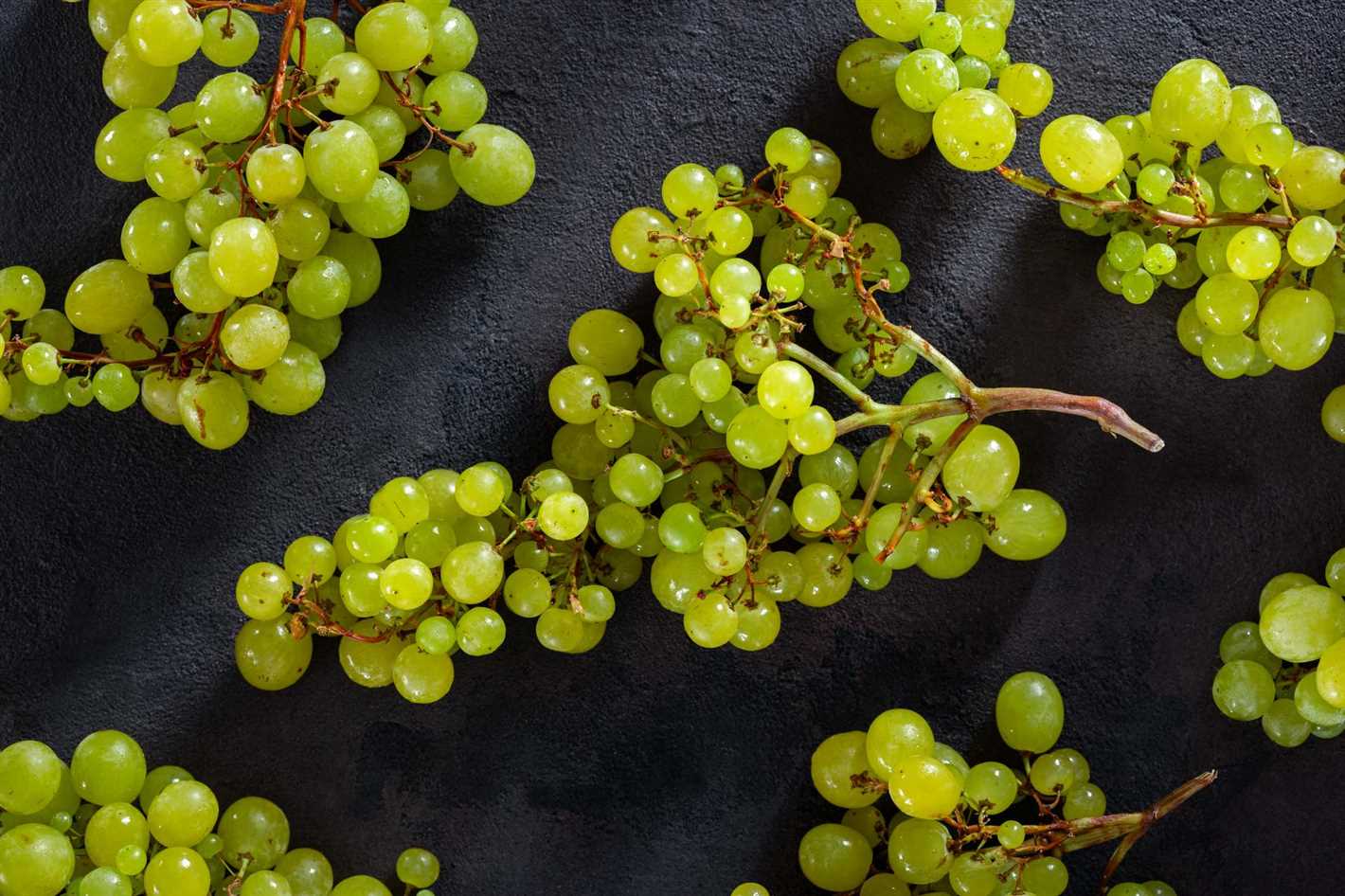
- Concord: Known for its bold flavor and deep purple color, Concord grapes are a favorite for making grape juice and jelly. They have a sweet taste with a hint of tartness.
- Muscadine: Native to the southeastern United States, muscadine grapes have a unique, musky flavor that is both sweet and slightly tart. These grapes are often used to make wine and jelly.
Sour Varieties:
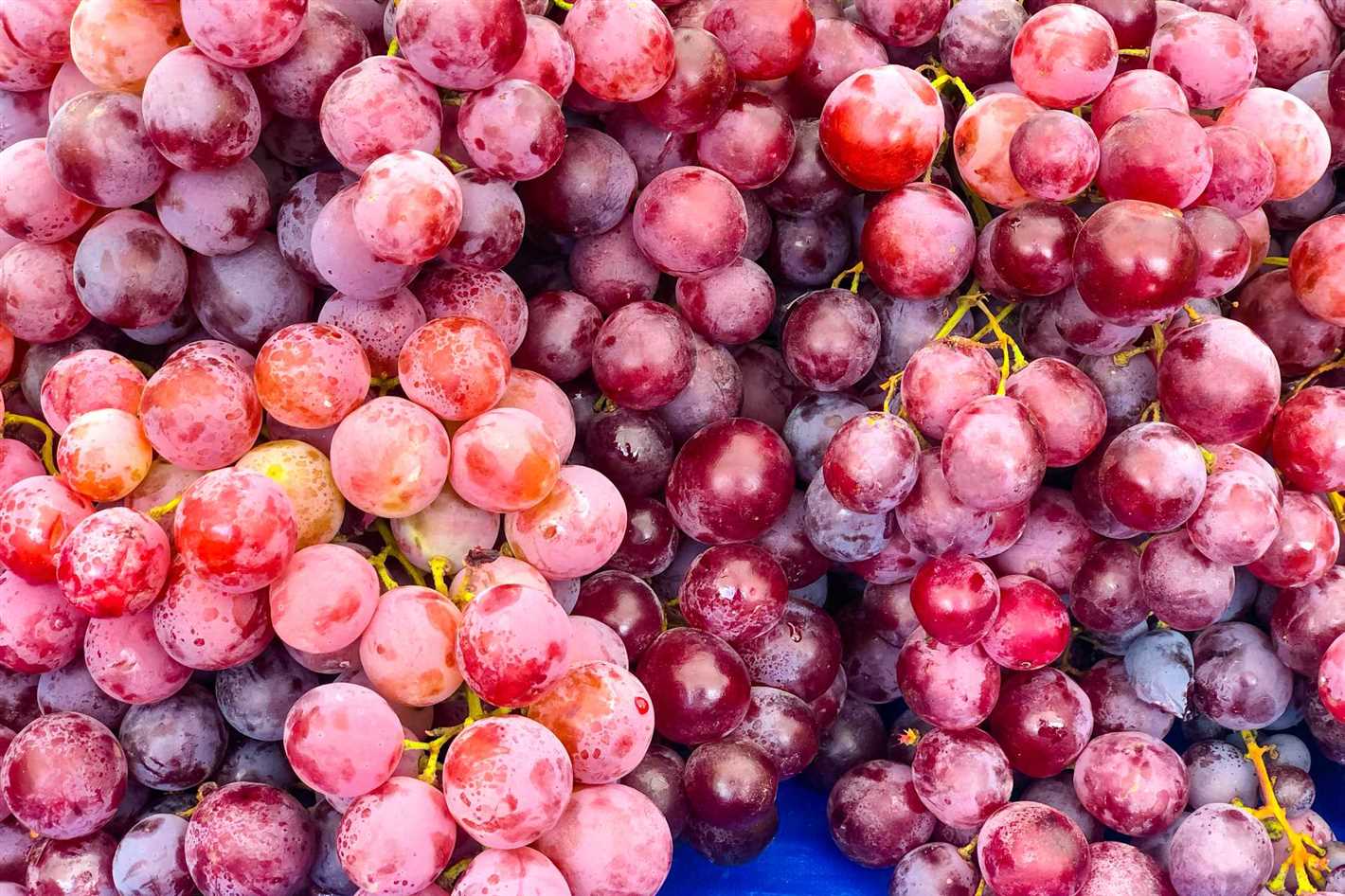
- Pinot Noir: Considered one of the finest red wine grapes, Pinot Noir grapes have a sour taste with earthy undertones. They are commonly used to make light, fruity wines.
- Sauvignon Blanc: Known for its crisp, acidic taste, Sauvignon Blanc grapes are often used to make dry white wines. They have a tart flavor with hints of green apple and citrus.
Whether you prefer sweet or sour grapes, there is a variety out there for everyone. Experiment with different types to find the perfect balance of flavors for your palate.
Disease-Resistant Grape Varieties:
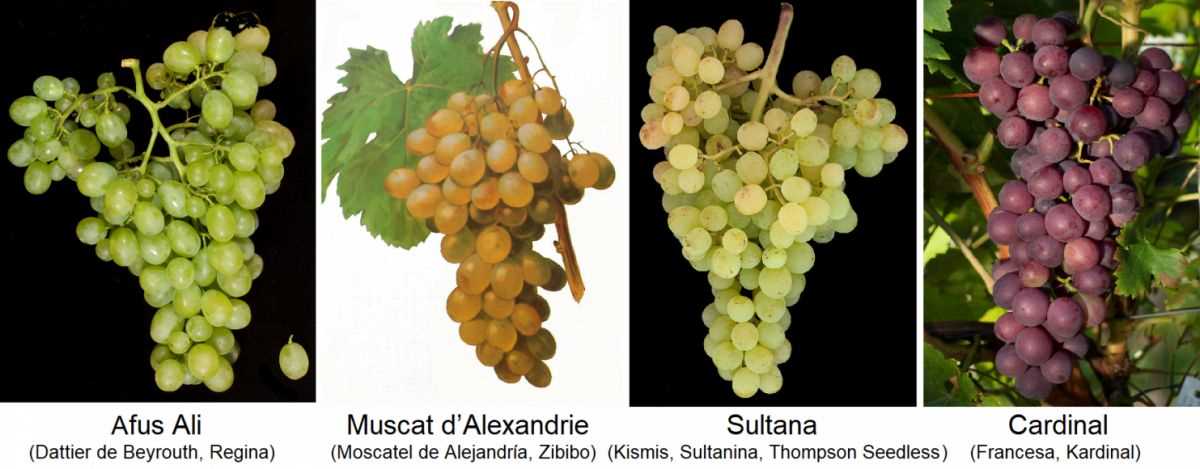
When it comes to growing grapes, one of the biggest challenges faced by farmers is dealing with diseases and pests. However, there are some grape varieties that have natural resistance to certain diseases, making them easier to cultivate and maintain. Here are four disease-resistant grape varieties:
1. Marquette:
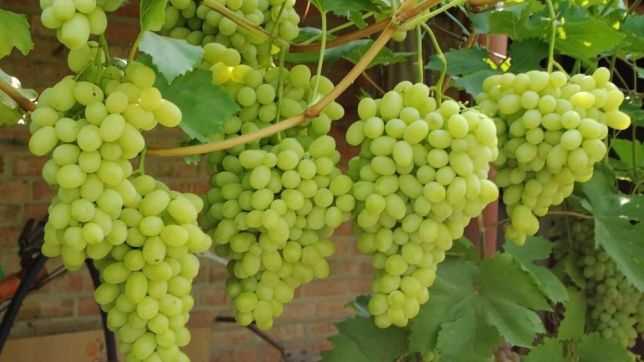
- Origin: Minnesota, United States
- Disease Resistance: Marquette is highly resistant to common grape diseases such as powdery mildew and downy mildew. It also has good resistance against extreme cold temperatures.
- Taste: Marquette grapes produce a dry red wine with rich flavors of cherry, blackberry, and plum.
- Usage: Marquette is commonly used for making red wines.
2. Regent:
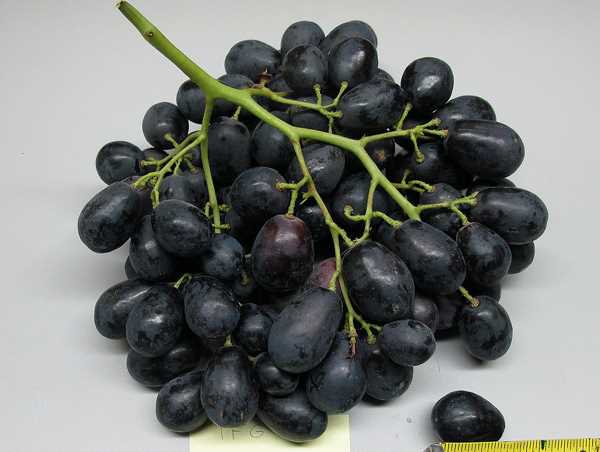
- Origin: Germany
- Disease Resistance: Regent is resistant to many common grape diseases, including downy mildew, powdery mildew, and botrytis bunch rot.
- Taste: Regent grapes produce a full-bodied red wine with hints of blackberries, cherries, and spice.
- Usage: Regent is often used for making red wines, but it can also be used for rosé production.
3. Noiret:
- Origin: New York, United States
- Disease Resistance: Noiret is resistant to many grape diseases, including powdery mildew and downy mildew.
- Taste: Noiret grapes produce a medium-bodied red wine with flavors of black pepper, raspberry, and blackberry.
- Usage: Noiret is commonly used for making red wines.
4. Glenora:
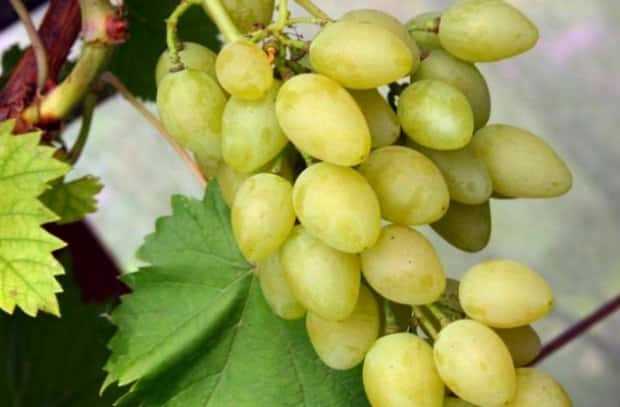
- Origin: New York, United States
- Disease Resistance: Glenora is highly resistant to cold temperatures and diseases such as powdery mildew.
- Taste: Glenora grapes produce a semi-sweet white wine with floral aromas and flavors of peach, apricot, and grapefruit.
- Usage: Glenora is mainly used for making white wines.
These disease-resistant grape varieties offer great benefits to grape growers as they reduce the need for excessive use of pesticides and fungicides, making the cultivation process more environmentally friendly. Additionally, they can produce high-quality wines with unique flavors. If you’re a grape grower looking for a low-maintenance variety, consider planting these disease-resistant grapes.
Muscat Grape Varieties:
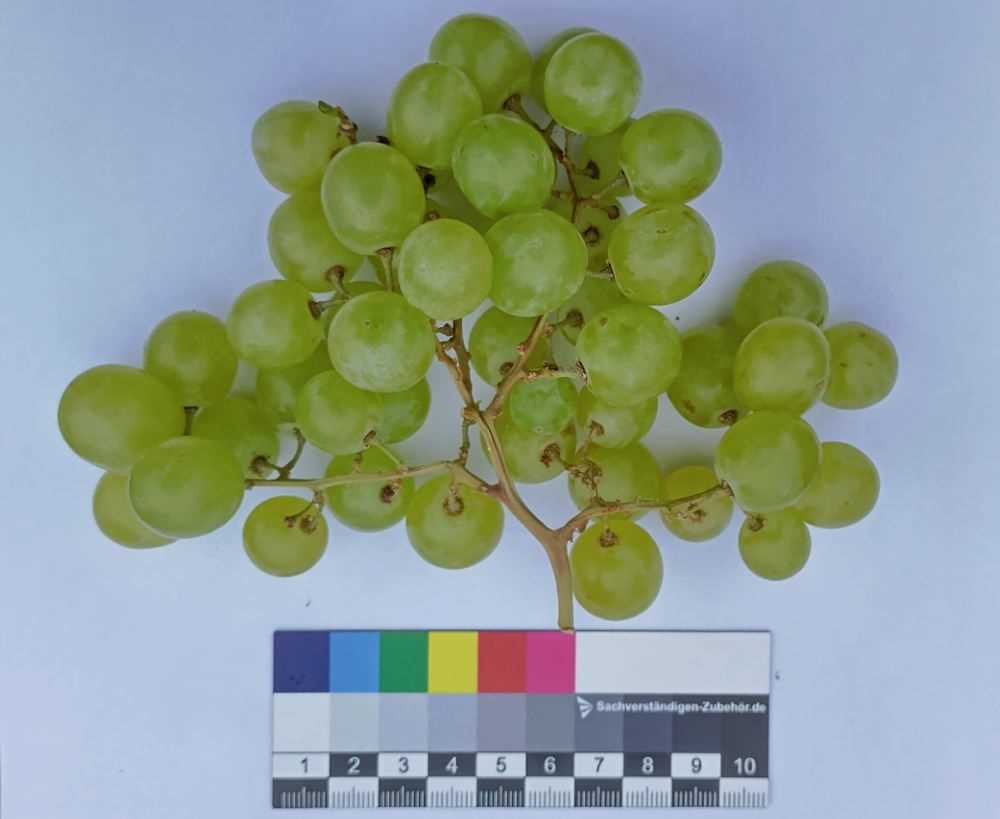
The Muscat grape is one of the oldest known grape varieties, dating back to ancient times. It is known for its distinctive sweet and musky aroma, which is why it is often used to make dessert wines. Muscat grapes are also popular for eating fresh or dried as raisins. There are several different varieties of Muscat grapes, each with their own unique characteristics. Here are some of the most popular Muscat grape varieties:
Muscat Blanc à Petits Grains:
- Muscat Blanc à Petits Grains is the most common and widely cultivated Muscat variety. It is known for its small berries and floral aroma.
- This variety is used to make a variety of wines, including the famous Muscat de Beaumes-de-Venise from the Rhône region of France.
- Muscat Blanc à Petits Grains is also used to make the Italian sparkling wine Moscato d’Asti.
Muscat of Alexandria:
- Muscat of Alexandria, also known as Muscat Gordo Blanco, is one of the oldest grape varieties in the world.
- It is known for its large, oval-shaped berries and strong musky aroma.
- This variety is often used to make fortified wines, such as the famous Australian wine, Rutherglen Muscat.
Black Muscat:
- Black Muscat, also known as Muscat Hamburg, is a red-skinned Muscat variety.
- It is known for its intense fruity aroma and sweet flavor.
- This variety is often used to make sweet dessert wines, and is also popular for eating fresh.
Muscat Ottonel:
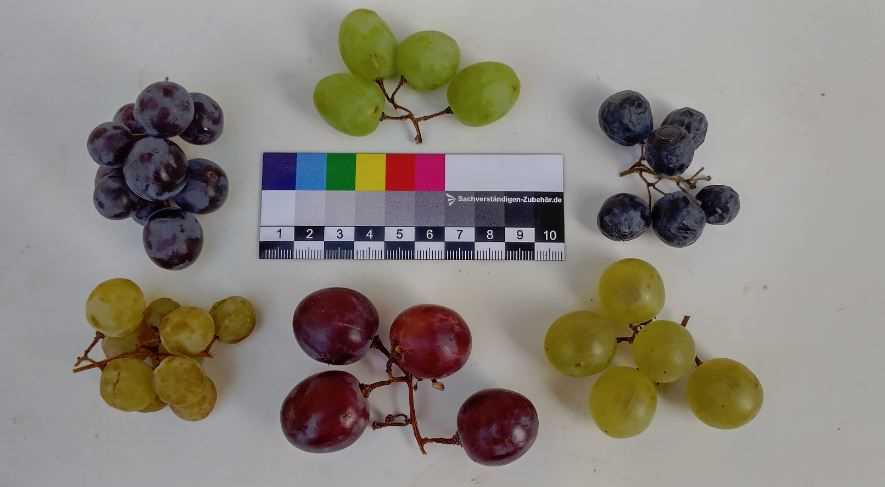
- Muscat Ottonel is a white-skinned Muscat variety.
- It is known for its aromatic and floral characteristics.
- This variety is often used to make dry white wines, as well as fruity and floral dessert wines.
Sultana Grape Varieties:
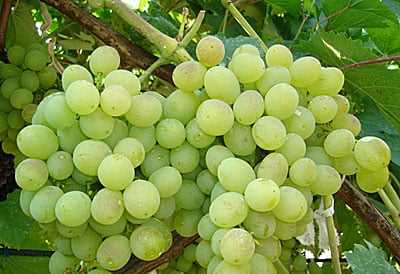
The Sultana grape variety is a popular white seedless grape that is known for its sweet and slightly tangy taste. It is also known by other names such as Thompson Seedless or Sultanina. Sultana grapes are commonly used for making raisins, but they can also be enjoyed as a fresh snack or used in cooking and baking.
Sultana grapes are small to medium in size and have a pale green color when they are ripe. The grapes are crisp and juicy, with a delicate texture that melts in your mouth. They have a high sugar content, which gives them their sweet taste, and a moderate level of acidity, which provides a subtle tanginess.
One of the main advantages of Sultana grapes is their disease-resistant properties. They are less prone to fungal diseases such as powdery mildew and downy mildew, making them easier to grow and cultivate. This makes Sultana grapes a popular choice for both commercial growers and home gardeners.
Aside from their taste and disease resistance, Sultana grapes are also known for their high nutritional value. They are a good source of vitamins and minerals, including vitamin C, vitamin K, and potassium. They are also low in calories and fat, making them a healthy snack option.
In terms of usage, Sultana grapes are versatile and can be enjoyed in various ways. They can be eaten fresh as a snack, added to salads and desserts, or used in jams, jellies, and preserves. They are also commonly used for making raisins, which are dried grapes that can be eaten on their own or added to baked goods.
Overall, Sultana grapes are a delicious and versatile grape variety that offers a sweet and tangy flavor. They are easy to grow and resistant to diseases, making them a popular choice for both growers and consumers. Whether enjoyed fresh, dried, or cooked, Sultana grapes are a tasty addition to any meal or snack.
Question-answer:
What are the characteristics of sweet and sour grape varieties?
Sweet and sour grape varieties have a combination of both sweet and tart flavors. They provide a pleasant balance between the two tastes, giving a refreshing and unique flavor profile. These varieties are often enjoyed fresh or used in making juices and jellies.
Why are disease-resistant grape varieties important?
Disease-resistant grape varieties are important because they require fewer pesticides and treatments compared to traditional varieties. This results in lower environmental impact and reduced health risks for consumers. Additionally, disease-resistant varieties often have better yields and more uniform fruit quality.
What makes muscat grape varieties special?
Muscat grape varieties are special because of their intense and distinctive aroma. The grapes have a sweet floral scent reminiscent of musk or honey. They are often used in winemaking to add a unique and fragrant character to the wine. Muscat grapes can also be enjoyed fresh or used in cooking and baking.
What are the main characteristics of sultana grape varieties?
Sultana grape varieties are known for their small to medium-sized grapes with a light golden color. They have a sweet and juicy taste, making them ideal for eating fresh or using in desserts and dried fruit production. Sultana grapes are commonly used in making raisins, currants, and other dried fruits.
Can you recommend any disease-resistant grape varieties for home gardeners?
Yes, there are several disease-resistant grape varieties available for home gardeners. Some popular options include Marquette, Frontenac, and Itasca for cold climates, and Chambourcin and Norton for warmer regions. These varieties are known for their resistance to common grape diseases such as powdery mildew and downy mildew, making them easier to grow without heavy pesticide use.
